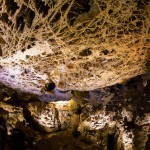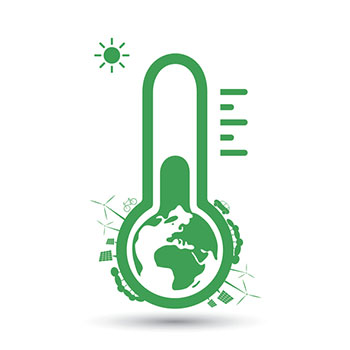Overview of Ecology Studies
Ecology is a multidisciplinary area of study that integrates the traditional sciences, like biology and chemistry, with social sciences, to form a deep understanding of the environment, animals and ecosystems, along with the social and political problems that pose a threat to wildlife. The focus of degree programs is to build a strong foundation in ecology and conservation biology, and to ultimately develop students into difference makers who will work to protect, preserve, manage and restore the natural environment. Professionals in the field typically work for conservation organizations, businesses in sustainable agriculture, and environmental protection agencies. Earning a degree in Ecology is one of the many acceptable degree options that meet the minimum education requirements to become a Game Warden, Wildlife Manager, or Conservation Officer.
Career Options with a Degree in Ecology
Earning a degree in Ecology leads to a diverse set of careers for all experience levels. Like most industries, increased training and experience will typically lead to higher salaries, levels of responsibility and autonomy. For example, graduates with an associate’s degree will likely be hired for entry-level positions as research assistants and outdoor educators, while professionals with a master’s degree will typically find employment in more advanced careers such as Wildlife Biology, Wildlife Management and Post-Secondary Education. Listed below are some examples of jobs typically filled by graduates of Ecology programs:
| Degree | Occupation |
|---|---|
Associate of Science (A.S.) | Laboratory Assistant Research Technician Teaching Assistant Field Technician |
Bachelor of Science in Ecology (B.S.) | Wildlife Specialist Outdoor Educator Laboratory Assistant Research Assistant Game Warden Park and Recreation Management K-12 Teacher Park Ranger Conservation Officer |
Master of Science in Ecology (M.S.) | Environmental Consultant Wildlife Biologist Natural Resource Manager Environmental Analyst Field Ecologist Environmental Planner College Professor |
Summary of Ecology Degree Programs
For students interested in a career in Ecology, Wildlife Management, or Environmental Conservation, the first step is earning a degree. Ecology degrees are typically available at the bachelors, masters and doctorate levels. At the undergraduate level, students receive a broad introduction to the life and natural sciences, including fundamental courses in chemistry, physics, geology and engineering. At the graduate level, students engage in more advanced and focused studies that includes quantitative research methods, mathematics, the writing of environmental impact statements, and the management of ecosystems. Continue reading below for details about common program objectives and curriculum for bachelor's and master's degree programs in ecology.
Associate of Science Degree (A.S.)
An associate degree is an undergraduate degree awarded to students who have completed approximately two years of academic study at a community college, technical college, four-year college or university. Students who earn an associate degree are equipped with the basic skills to find employment in entry level positions, but most students who enter these programs do so with the goal of applying their credits to a four-year bachelor's program.
The most common associate degree program for students who intend to pursue further study in the field of Ecology is an Associate of Science degree. An Associate of Science degree provides students with a solid foundation in geology, mathematics, physics, chemistry, the physical sciences, and other basic subjects. A broad background in all of these subjects is needed before students begin their study of more advanced ecological concepts and processes. Below is a sample of the introductory curriculum offered by Associate of Science (A.S) programs:
| Course | Course Description |
|---|---|
Biology | Introduction to study of life with emphasis on energy, cell biology, physiology, ecology and evolution. |
General Chemistry | Overview of fundamental principles of chemistry with lab work emphasizing measurements, analysis and synthesis. |
Calculus | Survey of modern physics, focusing on quantum mechanics and relativity and exotic phenomena. |
Statistics | Introduction to data analysis and statistical inference with biological applications. |
Technical Writing | Instruction in communicating information about technical subjects within a work setting including reports, summaries, emails and memos. |
Bachelor Degree in Ecology (4 Years)
Students enrolled in a bachelor's program in Ecology acquire a broad base of skills and knowledge in the environmental, life and natural sciences. Students balance four years of core classwork and general studies with field courses that build an understanding of research techniques and ecological systems. Graduates of bachelor's degree programs in ecology should be able to meet the following objectives:
- Demonstrate the ability to collect, evaluate and interpret scientific data.
- Apply quantitative models and data to solve problems in Ecology.
- Integrate fundamental principles of ecology to study and solve problems of interest to human societies.
- Display a working knowledge of mathematics, statistics and computers and apply them to scientific study.
Curriculum for Bachelor in Ecology Programs
The curriculum for a bachelor's degree in Ecology program is typically comprised of an integrated series of courses in fundamental areas of the allied sciences that enhance the understanding of evolutionary and ecological processes. Students are immersed in a suite of field courses that require students to learn and conduct research in a variety of environments. Students may also choose an area of specialization such as Wildlife Science or Wildlife Management. The table below includes some of the common courses offered by Ecology programs:
| Course | Course Description |
|---|---|
Conservation Biology | Overview of conservation ecology including biology, extinction and wildlife management as well as environmental policy, socioeconomic demands and environmental ethics. |
Animal Behavior | Overview of the remarkable behaviors of wild animals from an evolutionary perspective. |
Principles of Wildlife Management | Introduction to the principles and practices of wildlife management including conservation, ecology, habitat and objectives and strategies for fisheries and wildlife populations. |
Climatology | Basics of energy and moisture in the climate system, atmospheric circulation processes and patterns, and the spatial and temporal variations of climate. |
Fisheries Biology and Management | Fish and wildlife identification and the role of various natural resource organizations in conservation. |
Forest Fire Management | Primary factors affecting the start and spread of wildlife and recognition of potentially hazardous situations. |
Masters Degree in Ecology
Graduate-level Ecology programs prepare students for advanced careers in education, public safety, environmental planning, wildlife management, wildlife biology and many more. By focusing on advanced scientific concepts and their application to real world programs, Ecology programs seek to develop students into leading researchers and practitioners who are capable of addressing urgent environmental issues. Upon graduation, students should be ready to step into leadership positions within the field.
Listed below are examples of the coursework that graduate students will encounter in a Masters of Ecology program:
| Course | Course Description |
|---|---|
Soil Ecology | The importance of below ground ecosystem functions and climate-plant-soil interactions and how soil ecology dictates the primary nutrient dynamics. |
Field Ecology | Exploration of general principles of field ecology pertaining to terrestrial, aquatic and marine habitats. |
Ecosystem Ecology | Actively addresses the changes of ecosystem structure and processes related to humans and the long term consequences of such changes to humanity. |
Forest Ecology | Provides an understanding of the main controls on forest structure, growth and distribution and relate these to sustainable forest management. |
Environmental Planning | Reviews philosophical debates and emphasizes environmental planning techniques and strategies. |











